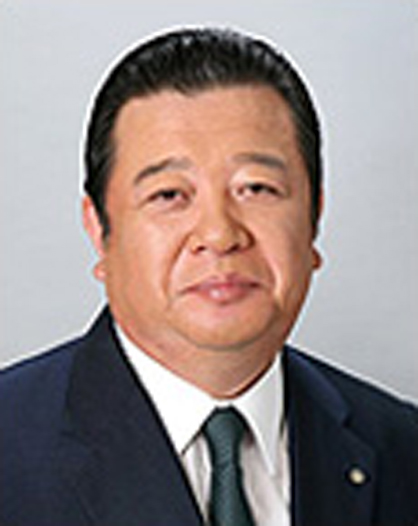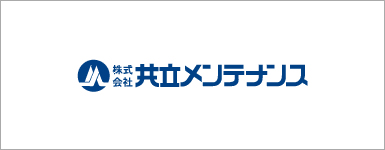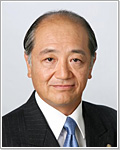| Kyoritsu Maintenance (9616) |
|
||||||||||||||
Company |
Kyoritsu Maintenance Co., Ltd. |
||
Code No. |
9616 |
||
Exchange |
TSE 1st Section |
||
Industry |
Services |
||
President |
Mitsutaka Sato |
||
HQ Address |
Soto Kanda 2-18-8, Chiyoda-ku, Tokyo |
||
Year-end |
March |
||
URL |
|||
* Share price as of closing on June 3. Number of shares outstanding as of most recent quarter end, do not include treasury shares.
|
||||||||||||||||||||||||
|
|
|
|
| Key Points |
 |
| Company Overview |
 |
| Fiscal Year March 2011 Earnings Results |
 FY3/11 Performance In Line with Estimates If Earthquake Impact Is Excluded
Net sales and ordinary income rose by 0.6% and 9.8% year-over-year respectively. The main business segments of dormitories and hotels trended strongly. According to Kyoritsu, the Great East Japan Earthquake that occurred in March is estimated to have depressed both net sales and ordinary income by ¥936 and ¥765 million respectively, and results would have been basically in line with Kyoritsu's estimates if the impact of the disaster is excluded. Net income declined from the previous year's level due in part to ¥111 million in losses resulting from the earthquake and ¥696 million in losses arising from the introduction of asset retirement obligation accounting standards recorded at the extraordinary income level. Capital investments declined to ¥3.037 billion from ¥13.203 billion in the previous term.The specific points of the disaster related losses included: 1) Declines in resident applications for dormitories in the six prefectures comprising the Tohoku region (Loss of sales and ordinary income of ¥60 million each), 2) cancelations of resident contracts by foreign students returning to their home country in the aftermath of the disaster (Loss of sales and ordinary income of ¥20 million each), 3) cancelations of reservations and subsequent loss of customers in business hotels (Loss of sales and ordinary income of ¥156 and ¥125 million respectively), and 4) cancelations of reservations and loss of customers in resort hotels (Loss of sales and ordinary income of ¥700 and ¥560 million respectively). Furthermore disaster related losses of ¥111 million were incurred at the extraordinary level.  Dormitory Business
Sales and operating income of the dormitory business rose by 1.1% and 16.3% year-over-year respectively. At the end of the fiscal year, the number of facilities operated rose by 4 year-over-year to 412 and the number of residents grew by 811 to 31,660.Student dormitory sales rose by 1.9% year-over-year to ¥23.001 billion on the back of a 4.7% year-over-year increase in contracted residents to 18,180. Cancelations of residency contracts resulted from foreign students returning to their home countries and cancelations of newly arriving foreign students were incurred due to the earthquake. However new dormitory contracts with Shonan Institute of Technology, Nippon Sport Science University, Sagami Women's University, Japan Women's University and other universities were concluded and contributed to the increase in this operation's sales. Sales of corporate dormitories fell by 2.4% year-over-year to ¥9.126 million. However the occupancy rates in this operation trended favorably with the number of corporate users standing at 1,203, and the number of contracted employee residents rising by 2.8% year-over-year to 7,722. The weaker sales are attributed to declines in fees related to large lot cancelations, compared with the previous term. Dormir operation sales rose by 2.7% year-over-year to ¥3.479 billion on the back of a 7.4% year-over-year increase in occupants to 4,054. Strong demand from students seeking to live by themselves and single employees allowed sales of this division's one room condominium type dormitory rooms to rise. Furthermore, sales of consigned dormitories management rose by 3.7% year-over-year to ¥2.991 billion. With regards to profits, strict cost management of each of Kyoritsu's facilities offset increases in new facility opening costs and delays in residency contracts for foreign students, and contributed to large increases in income. Hotel Business
In the hotel business segment, sales rose by 12.6% year-over-year and operating income turned positive. This recovery in profits at the operating level is attributed to improvements in profitability at each of Kyoritsu's existing facilities and declines in new facility opening costs compared with the previous fiscal year. Moreover, this positive performance was achieved despite the impact of the Great East Japan Earthquake upon travel and subsequent cancellations of hotel reservations, which is estimated to have lowered operating income by ¥685 million. In light of this fact, it may be safe to say that the hotel business will once again become a driver of growth once the impact of the earthquake disappears.Business hotel sales rose by 18.9% year-over-year to ¥14.378 billion and operating income of ¥235 million was recorded (Compared with an operating loss of ¥247 million in the previous term.). While occupancy rates at existing facilities declined to 78.0% from 79.5% in the previous term, the opening of six new facilities in the previous term and five new facilities in the current term (Dormy Inn Obihiro, Dormy Inn Asahikawa, Dormy Inn PREMIUM Kyoto Ekimae, Dormy Inn Nagasaki, Dormy Inn PREMIUM Shimonoseki) contributed to the higher sales. And amidst the industry wide trend for hotels to reduce value addition and focus upon only sales of rooms, Kyoritsu's strategy of raising the value addition of its hospitality by providing "large hot spring type bathing facilities" and "good tasting breakfast menus," and by catering to not only the needs of business travelers but also leisure travelers has been received favorably by the market. In reflection of this strategy, the average price per customer rose by ¥50 to ¥7,237. Resort hotel sales rose by 7.4% year-over-year to ¥15.897 billion and ordinary income improved to ¥101 million from a loss of ¥100 million in the previous term. A new facility called "Kusatsu Hot Springs Yuyado Tokino Niwa, Oyado Konoha" was opened during the term. And while the average price per customer declined by ¥677 to ¥15,761, occupancy rates rose to 72.1% from 67.7% in the previous term. The Company attributes this improvement in occupancy rates to the success of its sales strategy, which focused upon improving weekday occupancy. Other Business Segments
Contracted services business segment sales and operating income rose by 1.2% and 4.9% year-over-year respectively. While occupancy rates at rental buildings that saw cancellation of large tenants in the previous term improved, pressures to reduce pricing remained strong and were a factor behind the relatively weak recovery in this segment. Food services segment sales rose by 8.2% year-over-year, but new facility opening costs could not be absorbed and operating losses were once again incurred. Construction business segment sales and operating income fell by 20.2% and 38.3% year-over-year due to a decline in construction of in-house facilities.
  The most important point of this scheme is Kyoritsu's ability to fortify its financial position through the ability to quickly recover capital. Improvements in its financial position will enable Kyoritsu to secure new lines of capital for investments, and make new development possible. Because the proceeds from the sale of the properties were accounted for as cash and equivalents, assets and liabilities did not change significantly at the end of the term. However these proceeds are likely to be used as capital for new investments or to reduce interest bearing liabilities going forward. According to the Company's financial plans, total interest bearing liabilities (including long term leases and other interest bearing liabilities minus liquidity on hand) will decline from ¥55.7 billion to ¥52.31 billion at end fiscal year March 2012. Moreover, because lease agreements for consigned operation and management are maintained after the properties have been sold, the impact upon Kyoritsu's earnings during the period in which they are sold is negligible (Depreciation and amortization, insurance, taxes, and interest payment burdens will decline while rent payment burden will increase.). |
| Fiscal Year March 2012 Earnings Estimates |
 Growth in Profits Possible Despite the Impact of the Earthquake Disaster
During fiscal year March 2012, Kyoritsu calls for sales and ordinary income to grow by 8.3% and 5.8% year-over-year respectively. As an assumption to these estimates, Kyoritsu has factored ¥1.9 billion in sales (¥400 million in the dormitory business, and ¥1.5 billion in the resort hotel business) and ¥1.03 billion in ordinary income (¥208 million in the dormitory business, and ¥822 million in the resort hotel business) to be lost due to the aftereffects of the earthquake. Capital investments of ¥4.7 billion are expected in the coming term (Compared with ¥3.037 billion in the previous term.).In the dormitory business which is Kyoritsu's main earnings driver, seven new facilities with a total number of 689 rooms were opened primarily in the greater Tokyo metropolitan area after the start of April, and expanded the total number of facilities and rooms operated to 416 and 32,062 respectively. Furthermore occupancy rates at the start of the term rose by 2.4% points to 95.3% for a favorable start to the year. In addition, Kyoritsu will continue its efforts to improve profitability through strict cost management and close monitoring of occupancy rates of each facility. The hotel business, expected to become the second growth driver, is expected to achieve sales and operating income growth of 5.0% and 15.2% year-over-year respectively during the coming term. These are considered to be conservative estimates due to the fact that predicting business trends in this segment is difficult because it is the segment most likely to be affected by the aftereffects of the earthquake disaster. The business hotel operation is expected to see a gradual recovery (Occupancy rates estimated to rise 1.0% point to 77.8%) on the back of the full year sales contribution from six facilities newly opened in the fiscal year March 2011, and from new facilities to be opened in fiscal year March 2012. Furthermore the resort hotel operation is expected to see a decline in occupancy rates to 67.4% from 70.8%. New Endeavors
As new endeavors to be undertaken from the coming year, Kyoritsu will launch the overseas expansion of its Dormy Inn hotels, and its "Public Kyoritsu Partnership Business" (PKP: Jointly conducted consigned services business for regional government bodies).With regards to the overseas launch of Dormy Inn hotels, Kyoritsu is currently conducting validation and preparation work for the commercial launch of its hotels in overseas markets. In June 2011, Kyoritsu established a local company in Korea as part of its preparations to open a Dormy Inn in Seoul within fiscal year March 2012. Dormy Inn hotels took first place in customer satisfaction in the J.D. POWER ASIA PACIFIC "2010 Japan Hotel Accommodations Customer Satisfaction (Under ¥9,000 per night category)" survey. This increased brand awareness of Dormy Inn hotels and the high growth in other parts of Asia are some of the reasons behind the decision to expand into overseas markets. In the dormitory business, Kyoritsu's history of aggressive marketing activities targeting foreign students has also acted as a tailwind for this new venture as well. And the same "large hot spring type bathing facilities" and "good tasting breakfast menus" provided as part of the hospitality at Kyoritsu hotels in Japan are expected to be provided in their overseas hotel operations as well. Given that there are said to be short of 20,000 hotel rooms in the Seoul area and that the market there is split between high end and low end hotel rooms, demand for Dormy Inn hotels is expected to be strong as it fills a void within the mid-price segment of the market. The PKP business is expected to become the next large pillar of earnings. PKP is an acronym for "Public Kyoritsu Partnership" and refers to a business where Kyoritsu provides comprehensive consigned management services to various regional government bodies that are undergoing administrative and financial reforms (Including the consigned management of facilities, vehicles, and regional cultural event facilities.). This type of cooperative arrangement will enable regional government bodies to reduce their fiscal burdens while at the same time improving services provided to the citizens living in the local regions. Kyoritsu has already received numerous inquiries from regional government bodies and maintains a goal of achieving profitability within fiscal year March 2012. |
| Conclusions |
|
During the fiscal year March 2012, an important point will be how much progress Kyoritsu can make on its new financial strategies. Institutional investors have voiced their support for the stable growth of Kyoritsu, but they have also expressed their concern over the expansion in the Company's balance sheet. This is one reason for the low price to book ratio (PBR) valuation of the Company. And while there has been limited improvement in the financial position of Kyoritsu after the "Lehman Shock," the realization of a "sales and leaseback scheme" is a highly positive development for the future of the Company. Kyoritsu is expected to continue to take advantage of this sale and leaseback scheme in the future as well. Disclaimer
This report is intended solely for information purposes, and is not intended as a solicitation to invest in the shares of this company. The information and opinions contained within this report are based on data made publicly available by the Company, and comes from sources that we judge to be reliable. However we cannot guarantee the accuracy or completeness of the data. This report is not a guarantee of the accuracy, completeness or validity of said information and or opinions, nor do we bear any responsibility for the same. All rights pertaining to this report belong to Investment Bridge Co., Ltd., which may change the contents thereof at any time without prior notice. All investment decisions are the responsibility of the individual and should be made only after proper consideration.Copyright(C) 2011, All Rights Reserved by Investment Bridge Co., Ltd. |





